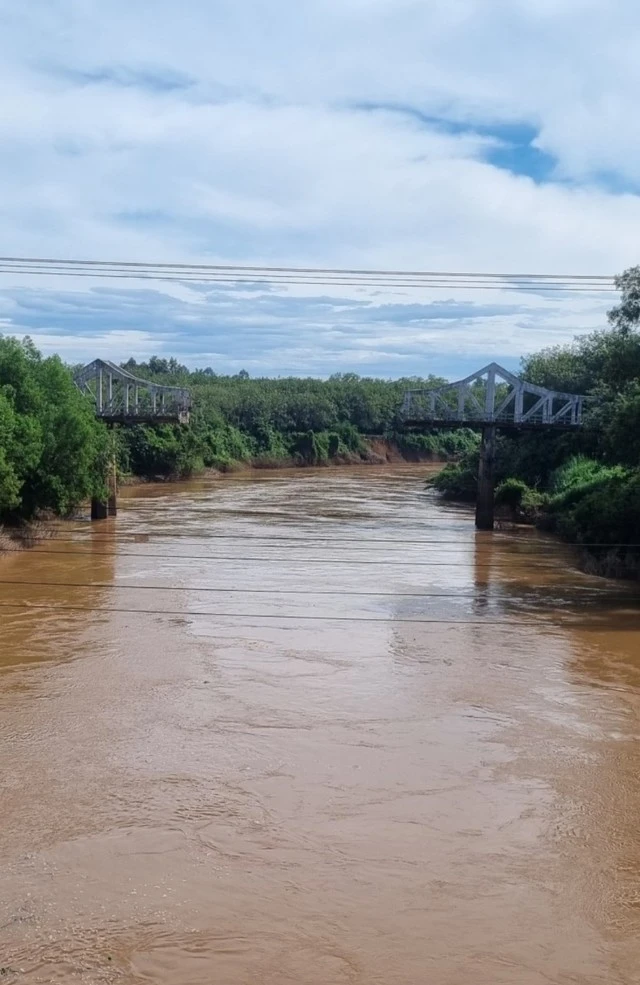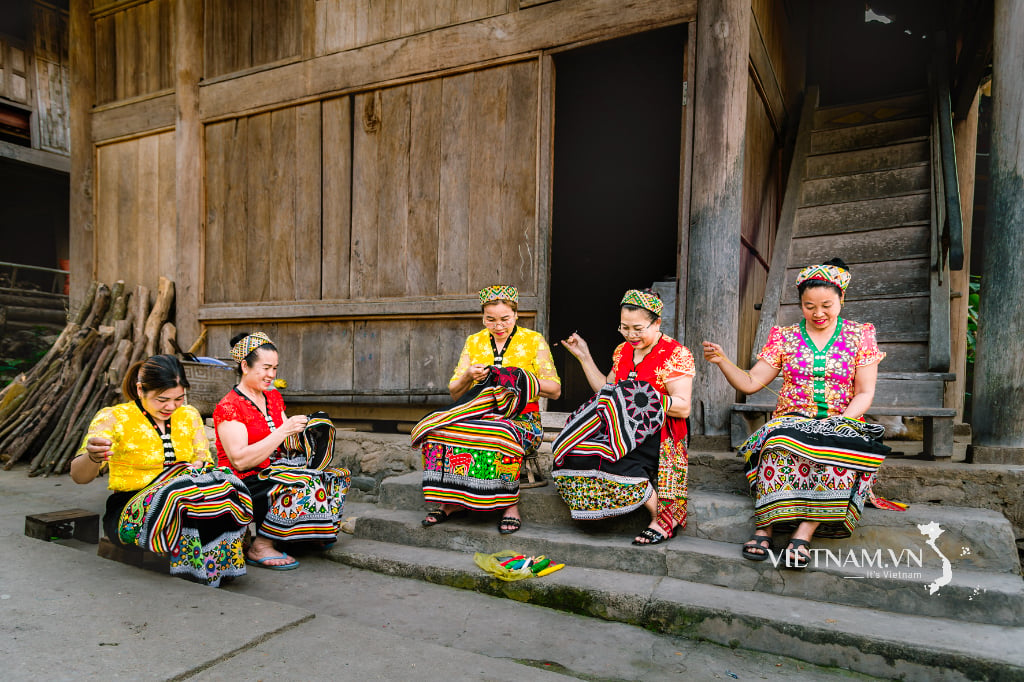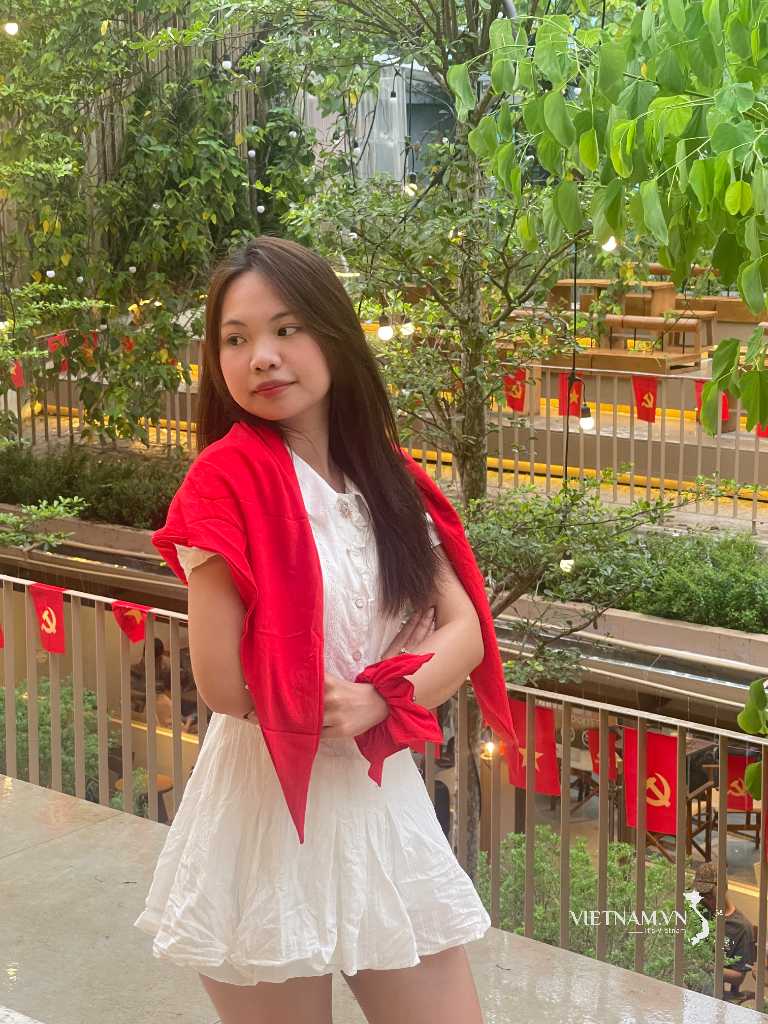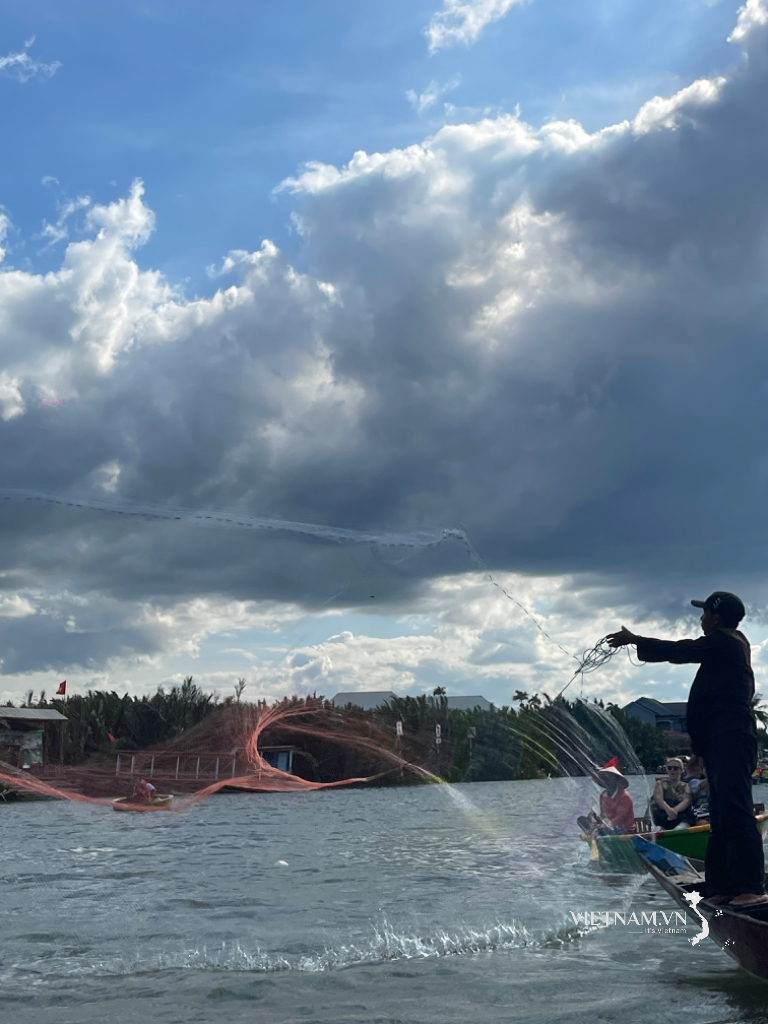"...The Be River, rubber trees, the gentle mother's milk
The durian trees are in season, emitting a fragrant aroma.
Look, that bamboo forest used to be a battlefield.
Today, we are also striving to build our future…”
(Excerpt from "I Will Come Back to Visit Your Hometown" - Vo Dong Dien)
Before 1997, Song Be was the name of a province in the southeastern region of Vietnam (now the two provinces of Binh Duong and Binh Phuoc ), and it was also the name of a river and a bridge.

The Song Be Bridge viewed from Phuoc Hoa Bridge (by the author)
The river
The Bé River is the largest and longest river flowing through Binh Phuoc and Binh Duong provinces before entering the Tri An area and then the Dong Nai River. The Thac Mo hydroelectric reservoir was built upstream of this river. The river is often associated with the childhood memories of many people. And so am I, remembering the Bé River of my hometown:
I remember when I was little, I used to go fishing by the river with my brother;
I remember those dry days when I went with my sister to pick wild greens (a type of wild vegetable);
I remember the days I went with my parents to visit relatives who made a living fishing on the Thac Mo hydroelectric reservoir.
And remember… so much!
The heroic bridge
The Song Be Bridge, built in 1925-1926 , spans the Song Be River in what is now Phu Giao District, Binh Duong Province. It is a vital bridge for transportation between the Southwestern region of Vietnam, Ho Chi Minh City, and the Central Highlands.
It is known that during the resistance war against the US: "With the attack by the army and people of Song Be province, the enemy in Phu Giao district retreated across the bridge to flee towards Ben Cat district. On their escape route, the enemy was intercepted and killed by our soldiers and guerrillas. On the afternoon of April 29, 1975, the enemy troops poured into Phuoc Hoa to find a way to escape. To avoid being pursued, the enemy commander ordered mines to destroy the Song Be bridge. By noon on April 30, 1975, Song Be province was completely liberated" (*). After the bridge was destroyed, the province built a new bridge next to it and named it Phuoc Hoa bridge.
And love for the land, love for the people.
My parents used to live in the Ben Cat and Tan Uyen areas of Song Be province, which is also the ancestral homeland of our grandparents. After liberation, due to economic difficulties, my parents had to leave their hometown to start a new life in the Dong Phu new economic zone (Binh Phuoc province). At that time, they had to find a place with rice fields and plantations in order to have enough to eat.
My parents found a suitable place, built a house, and cleared the land for cultivation. The house was made of wooden posts, thatched roof, and partitions made of clay from the rice paddies mixed with straw, kneaded until pliable, and then built layer by layer from bottom to top along a bamboo frame (like a steel frame). After construction, while waiting for the walls to dry, they were watered moderately for maintenance, just like cement concrete. When completed, the walls were windproof and provided excellent protection from sun and rain. My parents called them "earth walls."
My mother told me that I was born during the height of the famine before the economic reforms. There wasn't enough breast milk, so I had to drink water from boiled rice. While pregnant with me, my mother continued working in the fields and on the farm until the day I was born, only then daring to rest and recover. When I was just over a month old, she left me with my older brother and went back to the fields and rice paddies. But… we were still hungry.
My father said he worked tirelessly from dawn till dusk, only managing to take three days off each year for the Lunar New Year and a few days for the anniversaries of his grandparents' deaths. And yet… he was still hungry.
I remember that every time we went back to our grandparents' village in Ben Cat, about 60 km from Dong Phu where my family lived, it was a struggle because of the dirt roads. When it rained, the mud was ankle-deep and full of potholes; when it was sunny, dust flew up, turning the trees along the roadside a reddish-brown color. Yet, every time, my parents would take my siblings and me along so we could get to know our grandparents and aunts and uncles in our hometown.
My parents' neighborhood was also a place where many uncles and aunts from the lowlands (the area of present-day Binh Duong) came to make a living. The neighborhood stretched nearly 2 kilometers from the inner to the outer hamlet, with about a dozen houses. Some families lived in borrowed houses because they didn't have the means to build their own.
When I was in fourth grade, I wanted to buy a bicycle to ride to school. My dad agreed, but even though my mom had some money saved up for emergencies, she had to think it over and decided not to buy it. I thought, "Mom must not love me, she's so stingy, she's so annoying!" But no, "Mom is a thoughtful person; she worries about her husband and children not having enough to eat; she worries that it's dangerous for me, being so young, to ride a bike."
Uncle Nam, a neighbor from the neighboring village who had also come from Binh Duong to start a new life, knew about the situation and brought some money over to my mother, saying, "Your aunt took some money, and added a little more to buy a motorbike for him. Give it back when you have the money." "Yes! I'll discuss it with the children's father and let you know," my mother replied. Two days later, my mother bought me a motorbike with her savings, without receiving any help from Uncle Nam.
In those days, when a family in the neighborhood made rice pancakes, steamed rice cakes, or some other delicious dish, they would make a lot to give to each other as a gesture of goodwill. For ancestral commemorations and Tet (Lunar New Year), whether simple or elaborate feasts, neighbors would still invite each other to gather. If someone had a wedding or engagement party, the whole neighborhood would come from the day before to help with cooking and cleaning. That was solidarity, a manifestation of neighborly love. The same was true in labor; during the planting and harvesting seasons, neighbors would help each other with tasks from one house to another.
Now, life is more prosperous, and the once arduous land of Song Be has been rewarded with the success of its development.
And the people of this place will always remember and be grateful to the beloved people and land of Song Be.
Thank you, my homeland, for raising me!

Source link




























































































![[Photo] Coc Ly market bustling on the eve of Tet](https://vphoto.vietnam.vn/thumb/402x226/vietnam/resource/IMAGE/2026/02/14/1771062261424_baolaocai-br_img-6457-jpg.webp)








Comment (0)